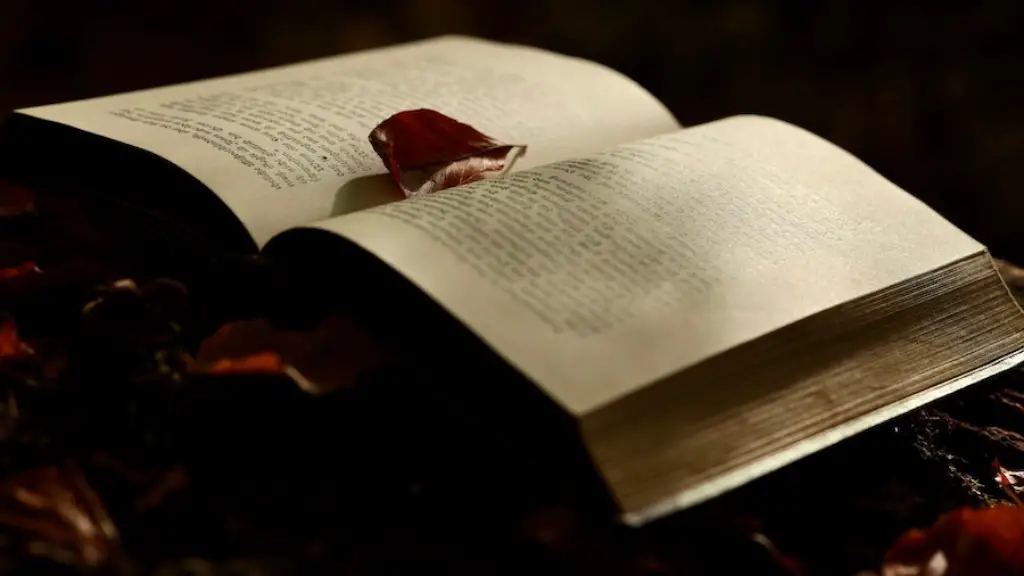Robert Frost is considered one of the greatest American poets of the twentieth century. He is well-known for his poetic style and skill in capturing the beauty and mystery of nature. But who inspired Robert Frost to write his famous works?
Frost was highly influenced by the works of many great writers and poets throughout his lifetime. Firstly, he was influenced by the works of Emily Dickinson, the famous American poet, who deeply moved him with her dark and melancholic writing. Additionally, Robert was also strongly impacted by the works of William Wordsworth, another renowned poet, whose simple yet profound works of nature and life helped shape Frost’s literary style.
Frost was also influenced by his own personal experiences. He experienced a great deal of tragedy in his life, including the death of two of his children. This inspired him to write melancholic yet poetic works that conveyed his profound sadness and emotions. Moreover, he was deeply moved by the harsh nature of his rural life and the feeling of loneliness it inspired.
Another great inspiration for Frost was his love of nature. Nature was a constant source of solace for him and its beauty and mystery left him inspired. Furthermore, his exploration of the solitude he felt in nature and his admiration for its simple beauty echoed in his writing. Additionally, Robert was also drawn to the unpredictable nature of life and he often showcased this in his works.
Although Frost was greatly influenced by these important figures, it is believed that his unique style of writing was shaped by his own personal experiences and observations of life and nature. He collected these experiences and drew on them to create his beautiful works. Indeed, Robert Frost’s works remain an inspiration to both poets and readers alike.
Diary Writing
Writing was a way for Frost to express his thoughts, feelings, and emotions. He wrote a variety of works throughout his life, including composed poems, notebook entries, and stories. He used diary writing as a way to escape from the world and it eventually became a huge source of inspiration for him. Additionally, Frost used diary writing as a means of self-expression. He could articulate his reflections and observations of life in a way he found difficult to share with others.
In addition, Frost sought solace in his writings as a form of comfort. He could express himself honestly without fear of judgement and he often used this as an outlet for his thoughts and feelings. This allowed him to connect deeply with himself and explore parts of himself he was not used to looking at. The privacy of writing also allowed him to freely explore his thoughts and emotions in a safe space.
Frost’s diaries provided an escape from the reality of living, enabling him to express himself freely without fear of judgement. He used diary writing as a safe space where his thoughts and feelings could be expressed without any external interference. This provided him with a sense of catharsis, allowing him to express his emotions in a protected and intimate arena.
Exploration of Life Through Poems
Frost’s exploration of life in his poems was one of his major sources of inspiration. He observed the beauty and mystery of nature, the harsh realities of life, and the unpredictability of the world. His poems evoke feelings of melancholy and yearning, whilst also conveying the pleasure which can be found in taking advantage of life’s fleeting moments.
Frost’s poems also showcased his own personal experiences and his unique perspective of life. He expressed his admiration for the simple beauty of nature and his longing for the moments of joy and courage he had experienced in his life. He also expressed his sorrow and disappointment with the cruelty and turmoil he had also endured. In this way, Frost’s poems became a means of understanding and making sense of his life.
Moreover, Frost’s poem serve as an exploration of life and its various facets. He wrote about the power of emotions, the joy of life, the unpredictability of nature, as well as his own personal experiences. Through his poems, Frost conveyed his opinions and experiences of the world in a unique and lyrical style that has come to define his works.
Ultimately, Frost used his poems as a way of life exploration and as a means of expressing his personal experiences, observations, and emotions. His works remain a source of inspiration, conveying the beauty and mystery of life, whilst also evoking themes of sadness and longing.
Experimentation With Form
Frost’s works also featured a great deal of experimentation with form. He experimented with a variety of poetic forms, including sonnets, villanelles, and haiku. He also experimented with the structure of his works, often alternating between free verse and traditional forms. This experimentation helped him to develop his own distinctive poetic style.
Frost also combined his works of nature and experience with compelling story-telling. He wrote narrative poems which featured characters, scenes and stories, weaving together his own observations and emotions with observations of the world around him. In this way, Frost’s works combined his observance of life with its moments of joy, sorrow, and beauty.
Frost’s experimentation with form enabled him to capture the beauty and mystery of his surroundings, as well as his own personal experiences. Through his works, he was able to put into words the emotions, thoughts and experiences that moved him. This experimentation with form enabled Frost to create unique and lyrical works, showcasing his vivid imagination and profound skill as a poet.
Destination Poetry
In addition to his experiments with form, Frost also used his poetry as a method of destination writing. His works often featured detailed descriptions of places and scenes, capturing the beauty and mystery of nature. This destination writing enabled him to observe and explore his experiences, providing him with a way of understanding the world around him.
Frost wrote about various locations, including his hometown in rural New England. This enabled him to recall memories connected to these places and contemplate the culture he encountered on his journey. By depicting detailed scenes and observations, Frost was able to accurately capture the ambience of a place and the emotions of its people.
The use of destination writing in Frost’s works also served to convey his admiration for the world and his connection to it. He was able to articulate his admiration for the natural beauty of his surroundings and his love for nature. This enabled him to express the joy he found in his travels and the emotion of being surrounded by the wonders of the world. Frost’s works inspire us to appreciate the beauty of the world and to take advantage of its moments of joy and courage.
Humorous Writing
In addition to his darker works, Frost also engaged in humorous writing. His playful, light-hearted works often showcased his love of life and his wit. They provided an escape from the sorrow he experienced in his life and his insecurities. He used humour as a way to deal with his inner turmoil and to express his own personal views on life.
Frost’s humorous works also showcased his admiration for life’s lighter moments. By using humour, Frost was able to capture life’s more joyous moments and to demonstrate his own unique perspective. This enabled him to explore how he felt about his life’s experiences, without fear of judgement or criticism. Frost’s humorous works remain, to this day, an excellent example of how humour can be used to convey profound messages.
Ultimately, Frost’s works demonstrate the power of writing as a tool for exploring the emotions within an individual. His works, both humorous and melancholic, showcase his ability to capture the complexities of life and its delicate beauty. His work remains a phenomenal source of inspiration for poets and readers alike.





